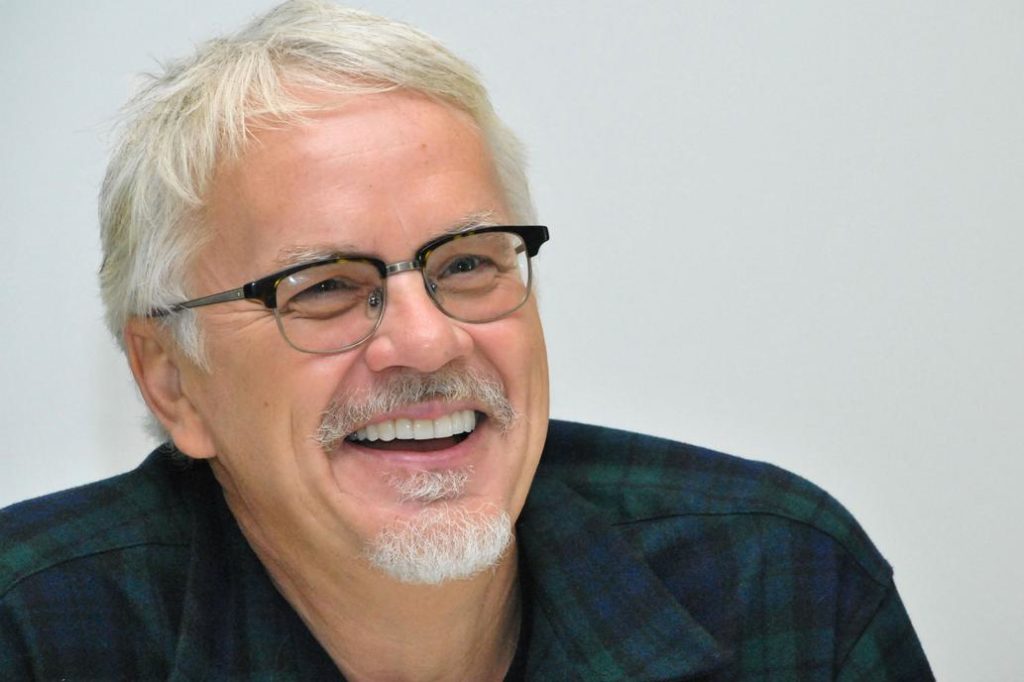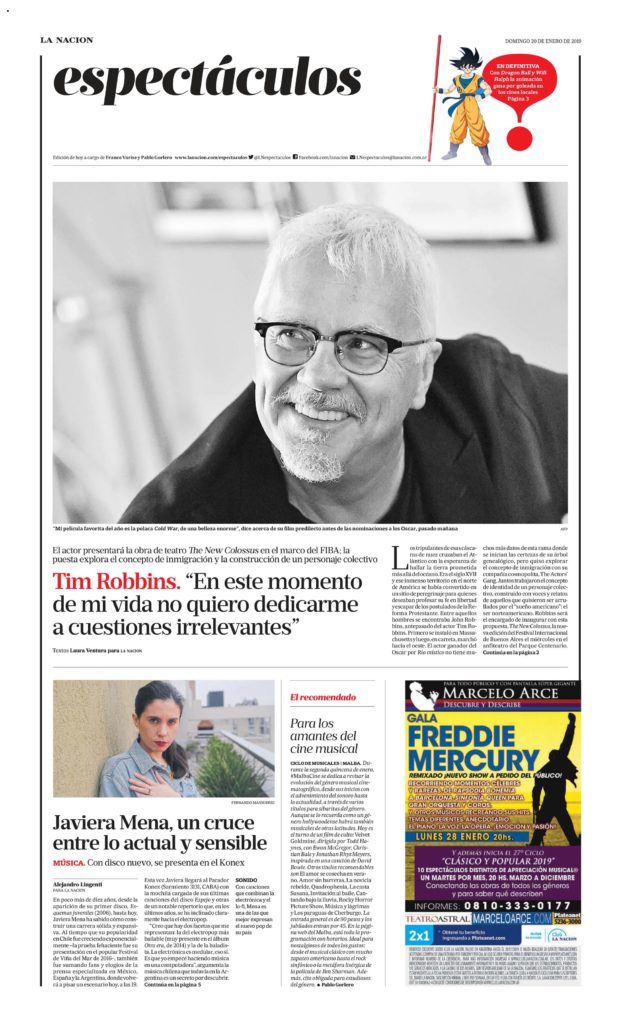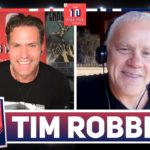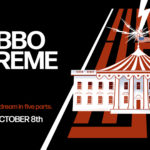The crews of those nutshells crossed the Atlantic in the hope of finding the promised land beyond the ocean. It was the seventeenth century and that immense territory in northern America had become a place of pilgrimage for those who wished to profess their faith in freedom and escape the postulates of the Protestant Reformation. Among those men was John Robbins, ancestor of actor Tim Robbins . First he settled in Massachusetts and then, by wagon, he marched west. The Oscar winning actor for Mystic River does not have much more information about this branch where the certainties of his family tree begin, but he wanted to explore the concept of immigration with his cosmopolitan company, The Actors’ Gang. Together they worked on the concept of identity of a collective character, constructed with voices and stories of those who wanted to be lulled by the “American dream”: the American being. Robbins will be responsible for opening with this proposal, The New Colossus, the new edition of the International Festival of Buenos Aires on Wednesday at the Centennial Park amphitheater.
Tim Robbins
In 1981 Robbins, a lover of New York, founded the company The Actor’s Gang in Los Angeles. For almost a decade he left Manhattan and moved near the Pacific to be able to participate actively as artistic director of this multi-ethnic group that has more than one hundred works represented and that counted among its members with interpreters of the stature of Helen Hunt or John Cusack. The New Colossus takes its title from a sonnet by Emma Lazarus engraved on the steps at the foot of the Statue of Liberty, today considered an emblematic and mythical site with which immigrants dreamed and where they began a new life in “the land of the opportunities. ” In this piece with live music, twelve languages, twelve origins and twelve souls relate his arrival to Ellis Island in twelve different times of a nation.
-Works with classic texts generally, but this is a new story. How did you approach the creation of this work on refugees?
Many years ago when we were rehearsing Dream of a Midsummer Night this idea appeared because within the company there were many debates on the subject. I asked the actors to trace the stories of their own ancestors. Rehearsing this work involves a lot of emotion because the actors are honoring their family. It is always a great challenge for an interpreter to be on a stage, in a state of desperation and exposure, but talking about his family goes up much more the bet.
-What was the greatest complexity when writing and editing this work?
The actors are trained to solve problems and propose solutions. The stories of immigration are stories of obstacles and farewells, but I think the biggest challenge lies in language. I wanted the texts to be intelligent and to have humor. I trusted We all trust Language is a barrier at times and we wanted the word to convey emotion and what happened was that at moments of, precisely, greater emotion the word appeared in its own language.
– Do you speak another language?
-I speak mediocre Spanish.
-What is the thread of this piece? To what conclusion above?
– This happened during the presidency of Barack Obama during the Syrian crisis. In some sectors of the European media and of the United States, these people were falsely equated with terrorists. A huge lie. They were demonized and that was enormously irresponsible. The conclusion we reached is that all the people who left their country and did so for a specific reason: they could not continue to live safely in their country. They had to escape to find freedom. That unites us all our ancestors in the United States.
Tim Robbins
-Obama to Donald Trump, how do you live this moment, this management?
-It is disgusting and shameful that we have leaders who demonize people so poor and so desperate. It is terrible bullying. And it’s not just Trump. It’s the whole Republican Party. But that is not what the Americans represent and this is happening in other parts of the world.
The most adored failure
This year celebrates 25 years of the premiere of Dreams of Freedom , located in the first place of the IMDB site in the category “favorite film of all time.” In a jail in the humid and hot Ohio, Tim Robbins and Morgan Freeman filmed for seven months this story based on a 1982 story by Stephen King, Rita Hayworth and Shawshank Redemption. A few months ago, the writer confessed that he never collected the royalties check for US $ 5000 as a gesture of support for the young director, Frank Darabont, and the producer of the project. Robbins does not want to talk about the film, but he confesses that since then he often meets with Freeman, who has become an endearing friend.
Robbins has plunged several times in the violent universe of prisons. Directed while you are with me (1996), with Sean Penn and who was his wife for 30 years, Susan Sarandon, who composed a companion of convicts sentenced to the death penalty, work that earned the performer the Oscar for best actress . In addition, Robbins promotes with his company an educational project that enters the prisons to provide theater workshops in order to provide tools to the convicts so they can channel their emotions in a non-harmful way and so that those who achieve freedom, not return to prison. Red, the character of Freeman in Dreams of Freedom, he fears that so many years in prison have “institutionalized” him, that he has lost his ability to behave in society. “Keep busy or stay busy dying” is the dilemma that Red and Robbins poses in real life to contribute something for the first option.

-Other important movement in the world now is the #Me Too. How do you analyze what is happening?
-I think it is important that you start talking about these issues and that men listen carefully. It is also important for women to know that other women support them.
– Did you ever see in your work that this was happening?
-Of course. There are many rude people.
– He starred in Here and Now, a family drama that has points in common with The New Colossus, such as diversity, immigration
-Yes, and unfortunately the series was canceled. I accepted that project because Alan Ball was the creator, because he had the seal of HBO and because I believe that, as a person who can tell stories with his work, I must address what is important at this moment, what is discussed in the society. At this time in my life I do not want to devote myself to irrelevant questions.
– Lately you find more space on TV than in the cinema?
-Well, it depends on what kind of TV. I love working for HBO. I am very proud of the show I did with them in 2015, The Brinck . It’s almost a five-hour movie. I see that today’s television allows filmmakers to offer more extensive pieces of art.
-In this season of awards for the cinema, do you have any favorites?
-Yes Yes. My favorite movie of the year is the Polish Cold War , of a huge beauty. The actress [Joanna Kulig] has made, by far, the best interpretation of the year, and I also think that the direction is magnificent.
– Did you ever have a problem because you were honest?
-It is not something that I should say. I have been very blessed in this life and pursued what I wanted to do. I have been free to be and to do, and that is telling stories. Sometimes to millions of people, others to thousands. But the important thing is that they are stories that I am proud to tell. What I always do, in all areas, has to do with being able to manifest honesty and creativity.




